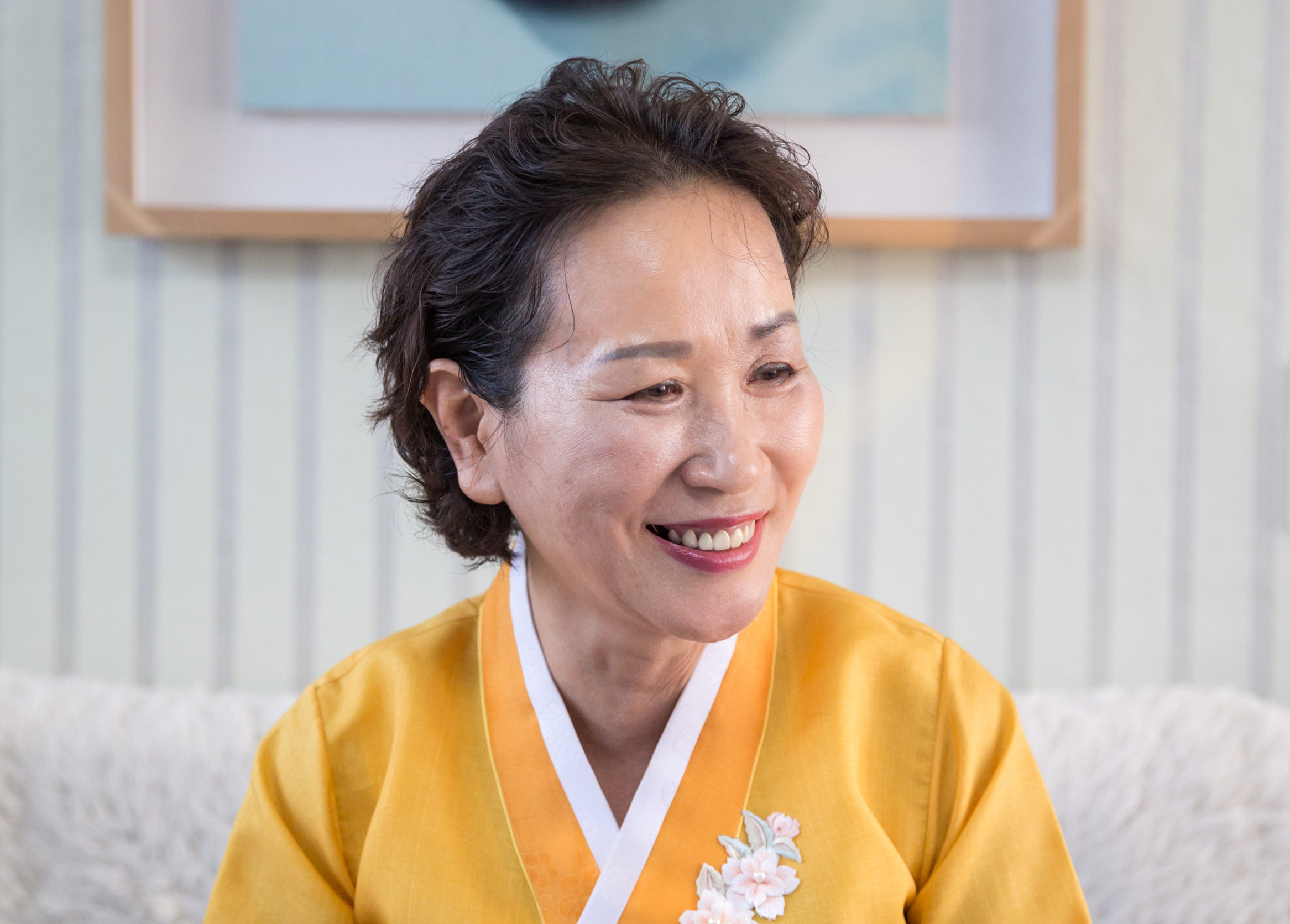Kwak Eun-joo: Promoting Gwangju’s Kimchi to the World
Written by Karina Prananto.
“Welcome! Please sit down” – friendly and welcoming. That’s the first impression we had when we met Kwak Eun-joo, winner of the Gwangju Kimchi Festival’s Presidential Award in 2000, in her office at the JS Cuisine Academy in Seo-gu, Gwangju. While getting comfortable, we were immediately served plums and cold drinks. Her office was filled with photos of her activities promoting kimchi all around Korea. In one corner of the room, I saw a picture of her children. We thought that in meeting someone who has achieved so much the atmosphere would be tense, but she was very warm, just like one’s own mother. And true, she said that she had many things to thank her mother for.
Born 62 years ago in Boseong, she is the first daughter of five children. As a first-born, she thinks that she is responsible for her younger siblings and that it was natural at that time to be learning cooking from one’s own mother. After graduating from high school, she and her four siblings moved to Gwangju, where she took over her mother’s role in preparing meals for her younger brothers and sisters. “Back then there were no school-supplied meals. Everything had to be prepared at home. So you can imagine that I had to prepare four dosirak (도시락, lunch boxes) for my sisters and brothers every day,” she said, looking back on those times.
After she got married, she learned more about food preparation, and soon afterwards, she entered the Gwangju Kimchi Festival for the first time but unfortunately was not successful. So every day she tried making kimchi and presented it to her professor to evaluate. Each time she would receive feedback. “I would present the kimchi with just a bowl of rice for lunchtime. I tried to make many different kinds of kimchi from different regions over several months. My professor would just say what needed improving. It was only in 2000 that I entered the competition again for the Gwangju Kimchi Festival; I was in my 40s then, and I finally won the Presidential Award. It was extra special, as I received it from President Kim Daejung.”
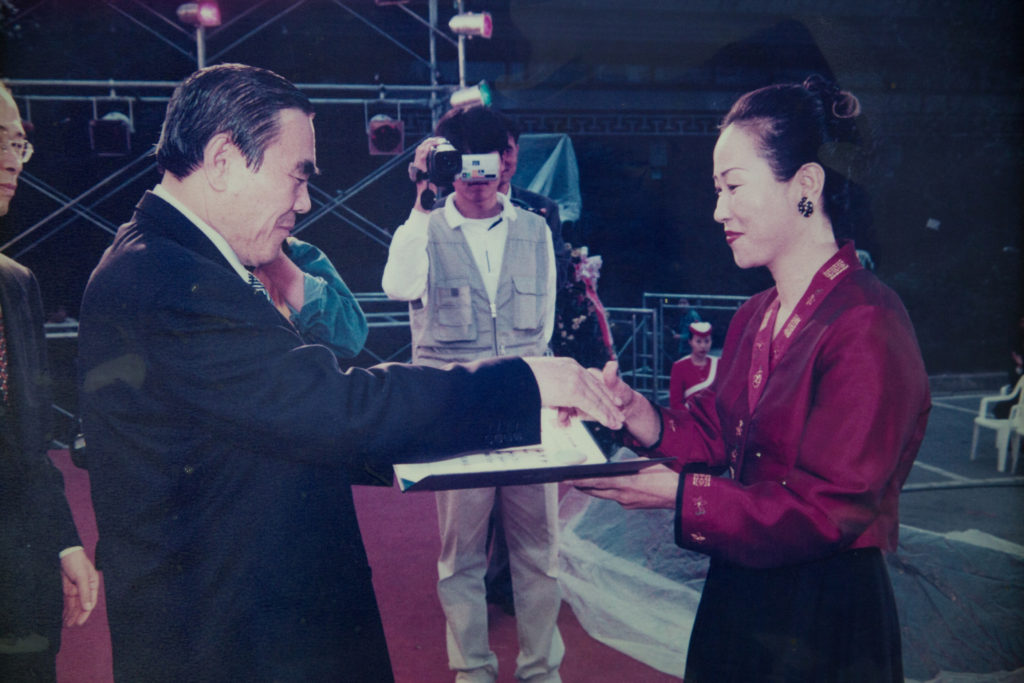
After receiving the award, Kwak’s life has never been the same. She has been invited to teach cooking at numerous places. Aside from teaching cooking at the academy, she is also currently working on a project to improve Mudeung Mountain Boribap (보리밥, steamed barley). She made a recipe for kids, as well as seasonal boribap with wild herbs and young radish. She is also currently serving as the general secretary of the Bitgoeul Traditional Cuisine Academy. She teaches at Gwangju Kimchi Town, the main venue of the Gwangju Kimchi Festival, where she also conducts experience programs. Sometimes, she will work until nighttime when there is an exhibition. Now, she is busy with the 18th FINA World Swimming Championships and FINA Masters Championships leading cooking experience programs for the international athletes and visitors.
Although she is now successful, she remembers the times when it was very difficult to develop a recipe. “I made five different variants of a recipe each time and invited 50 people from the general public to give them a try. If I thought my No. 2 recipe would be the best, many of my general public tasters might have liked my No. 5 recipe better, so that ended up being the one we chose. Everyone’s taste is different. In many cases, people have tastes quite different from what is expected.”
Sometimes Kwak also had trouble when she had to teach in front of foreigners, as the preparation method for kimchi is a bit complicated. “We have to make sure that the method is translated correctly so that the kimchi is made well. Some people want to start with difficult things, like japchae (잡채, stir-fried glass noodles with vegetables) or galbi (갈비, short ribs). I would suggest to those just starting out to begin by learning to prepare simple and practical dishes, like kongnamul gukbap (콩나물국밥, bean sprout soup with rice).
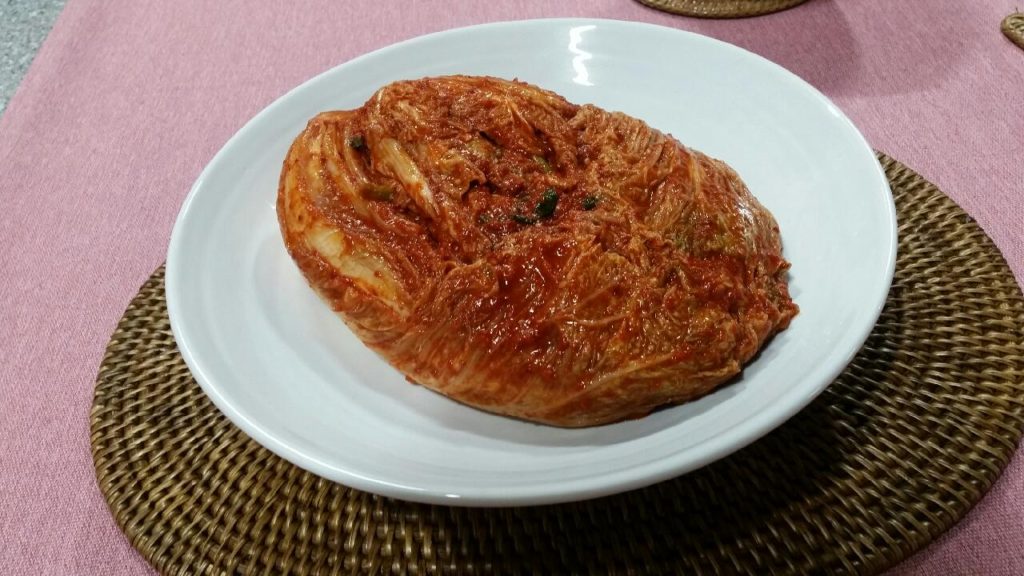
Still, she enjoys teaching foreigners how to make kimchi, as her main goal is to promote Gwangju kimchi to the world. “Gwangju kimchi is famous worldwide. If you say to people in Seoul that this is kimchi from Gwangju, they will be very impressed. Personally, my favorite kimchi is pa kimchi (파, green onion).”
She is very positive about Korea’s kimchi being a representative Korean food in the future. She keeps developing new recipes like kimchi bukkumi (김치부꾸미, kimchi rolls), kimchi sandwiches, oi-kkakdugi
(오이깍두기, cubed cucumber kimchi), and kimchi japchae, among others. She says that these days, children do not eat kimchi because they are not used to eating it at home. “At schools, the meals will definitely include kimchi, especially Chinese cabbage kimchi (baechu-kimchi, 배추김치). If their parents don’t give them kimchi at home, they won’t eat kimchi at school. So even if it’s just a little at the beginning, give your children kimchi to eat.” By introducing different kinds of kimchi as snacks, she hopes that young children may want to start eating kimchi. “People may doubt the benefit of kimchi, as they see that we use lots of salt, but if you use bay salt that has been stored for at least two years, once the bittern is precipitated out from it, it will lose its sodium and saltiness. You can feel it when you grab a handful; it doesn’t stick to your palm. That’s why people buy salt a year or more in advance for the next year’s kimchi-making.”
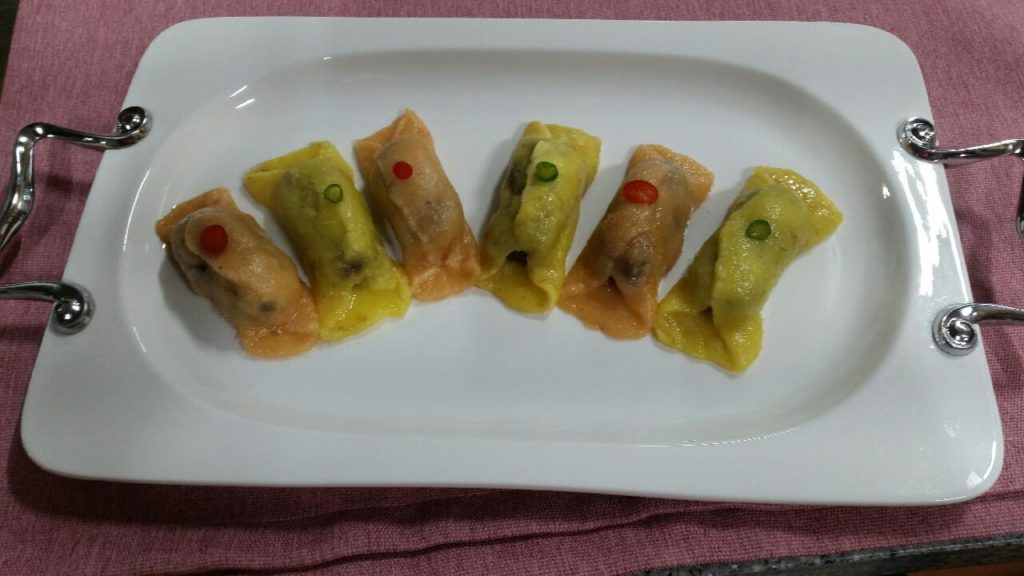
For those who want to try making kimchi for the first time, her only tip is to know the basics. “Some people might feel kimchi is a bit difficult to make and might feel discouraged at first when they try to make it, but it’s easy once you know the basic steps. And once you know the formula, it will be very easy. For example, if ganjang (간장, soy sauce) is one tablespoon, sugar is half a tablespoon, garlic is half the sugar, and green onion is half the garlic, etc., you can later adjust the composition to suit your taste as you get better at it.”
Looking back in time to her childhood, she said she credited her mother as her major influence. “The way she raised her children was commendable. Not once did she yell or show any anger toward us. She would always encourage us to do better, and she never said ‘don’t’ to us. This way, I developed a sense of quick decision-making and leadership. Now, I have my own children. I’ve raised them the way my mother raised me. I want to maintain the legacy of my mother by developing my own brand. I will probably call it ‘Jeong-ok Kimchi’ (정옥김치), naming it after my mother, so that it will be the first thing that comes to people’s minds when they think about kimchi. That is my dream.”
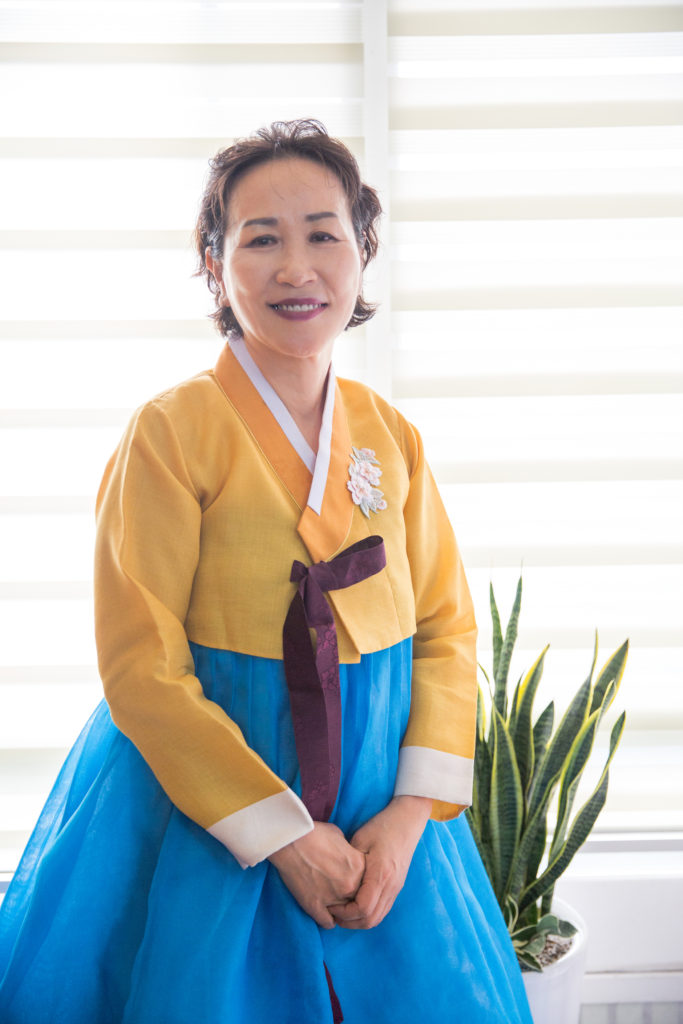
Now, successful and busy, she says that she will never stop promoting kimchi. She feels proud that Gwangju Kimchi Town was opened in 2010. Since then, the Gwangju Kimchi Festival has been held there annually. This year, it will be held for three days, October 25–27. “I think there are very few festivals in Korea that have been held for decades. We will hold the 25th Kimchi Festival this year. I am glad we have a bigger space to accommodate it than previously.”
Gwangju City often calls her to ask her to teach kimchi-making. “As a citizen of Gwangju, I feel obliged to promote and introduce kimchi to the world. I have been invited to China to do a kimchi exhibition, and people there love our kimchi. We have also developed a kimchi sushi.” I think that kimchi has become such a global phenomenon that even some of my relatives back home will ask me to bring them some Gwangju kimchi when I go back to visit.
Before we left, I asked Kwak one last question that had been lingering in my mind for a while. For someone who has dedicated almost her whole life to kimchi, what would it be like if the course of life were to change, and she would no longer be making kimchi. “I think I would just be working in an office,” she said. A very simple answer, by which I think she meant that it would not happen anytime soon, as kimchi is her passion.
On leaving her office, I had developed a whole new perspective of this representative food of Korea. I cannot wait for the Gwangju Kimchi Festival, were I hope to again meet Kwak Eun-joo.
Interview translated by Min Park
Photographs by Hillel Kim and courtesy of Kwak Eun-joo
The Author
Karina is from Indonesia and has been living in Gwangju since 2006. It was also the first year for her to attend the Kimchi Festival, where she tried making kimchi for the first time. Although she still struggles eating old fermented kimchi, she likes fresh kimchi and kimchi fried rice.




